Menu
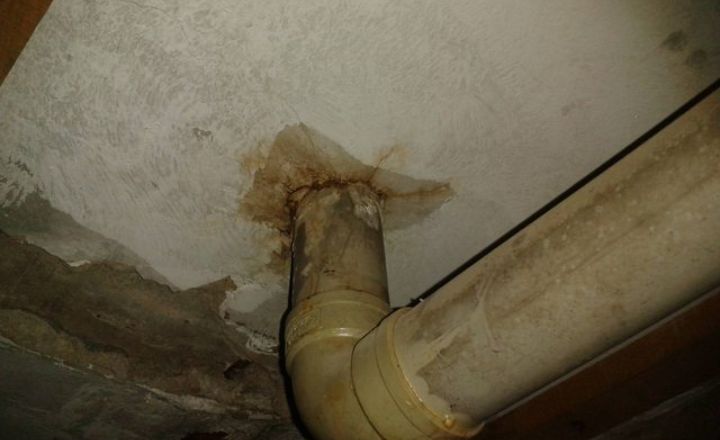
Spring Plumbing Problems can be costly. Today we are going to review some signs and issues to watch out for.
Plumbing systems are essential to any home, providing a vital service that we often take for granted. However, leaks can develop throughout the system, causing numerous problems requiring immediate attention.
These leaks can be caused by a range of factors, including cold weather, corrosion, wear and tear, and even poor installation. The longer the spring plumbing problems goes unchecked, the more severe it can become, leading to potential water damage, mold growth, and even more significant costs.
Regular maintenance, prompt repairs, and quality installations can all help to prevent or minimize leaks and ensure the longevity of your outdoor plumbing fixtures and system avoiding future spring plumbing problems.
Low water pressure is also common with spring plumbing problems in many households, and it can take away from the overall functionality of your home’s plumbing system. Whether it’s a simple fix, such as unclogging a pipe or replacing a valve, or something more complex, like re-piping your entire home, understanding the causes of low water pressure is important.
If your water pressure is consistently low, it could be a sign of a larger plumbing problem that requires professional attention. Frozen water could have expanded and damaged your pipes during the winter, causing household plumbing damage without you even knowing—these spring plumbing problems you want to avoid.
Don’t let low water pressure ruin your day-to-day routine. If you’re experiencing spring plumbing problems, it’s best to reach out to a licensed plumber who can help you diagnose and solve the problem.
Your home’s plumbing system is too important to take chances with, so it’s best to address any issues, big or small, as soon as possible to see if you have spring plumbing problems.
Slow drains can be a nuisance in any home or business. While it may seem like minor drainage problems are an inconvenience, over time, lagging drains can lead to more significant spring plumbing problems. The most common cause is a buildup of debris, such as hair, soap, and grease.
However, sluggish drains can also be caused by more serious spring plumbing problems, such as tree roots invading the plumbing system or a clog in the main sewer line. It’s essential to address sluggish drains promptly to prevent the problem from escalating. Professional plumbers can assess the situation and provide effective solutions to ensure your drains are flowing smoothly and drain effectively again.
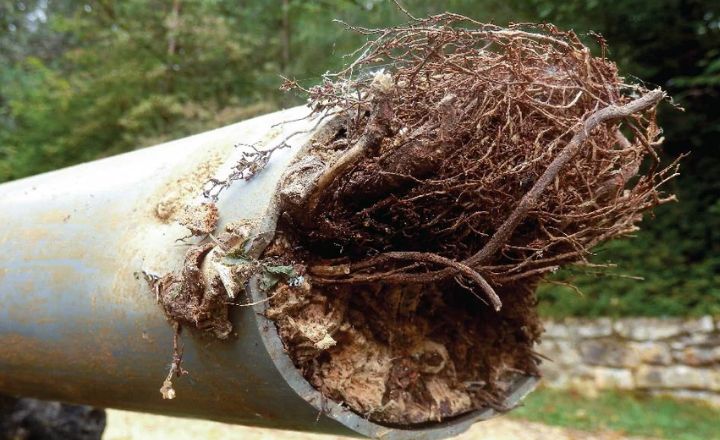
Main and sewer line obstructions can cause significant damage to a property’s plumbing system. These blockages are often caused by a buildup of objects such as hair, grease, or foreign objects, leading to slow drainage, clogged toilets, and backed-up sinks. Ignoring the spring plumbing problems can only make it worse, potentially leading to costly repairs in the future. Fortunately, professional plumbers have the experience and tools necessary to help residents with any plumbing issue, including obstructions.
They can use a camera inspection to identify the obstruction’s exact location and then employ specialized tools to remove it. Regular maintenance, such as using non-damaging cleaning products or scheduling annual plumbing check-ups, can prevent obstructions from happening in the first place.
Avoid the headache and cost of blocked pipes by being proactive and seeking help from licensed plumbers if needed.
Slow drainage and pipe back-ups are common spring plumbing problems that homeowners face. These problems occur due to the build-up of various materials such as hair, soap scum, oil, and debris in the pipes. It’s important to address slow drainage immediately, as it can lead to significant damage if left untreated.
Attempting to fix these spring plumbing problems with store-bought drain cleaners can actually cause more harm than good, as they often contain harsh chemicals that can damage your pipes. To properly address the problem and prevent future issues, it’s best to contact a professional plumber who can thoroughly inspect and clean your pipes.
Remember, prevention is key when it comes to spring plumbing problems, so it’s important to regularly maintain your pipes to ensure proper water flow throughout your home.
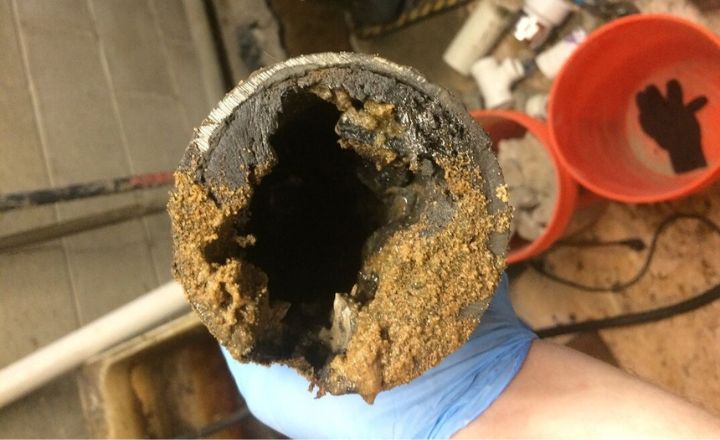
Sump pumps are devices installed in basements and crawl spaces to prevent flooding. A number of factors, such as blockages in the discharge pipes or a failed pump motor, can cause drainage to slow in your sump pump.
If you notice that your sump pump is not working as it should, it is important to take action immediately to avoid a potential disaster. Regular maintenance and cleaning can help prevent drainage issues, but sometimes repairs or replacement may be necessary. It is recommended to consult with a professional plumber or contractor to ensure that your sump pump is functioning correctly and to address any drainage concerns.
Common spring plumbing problems include your sump pump. When a pump fails, it can lead to expensive damage to your home and personal property. Some of the most common reasons for sump pump failure include a clogged or frozen discharge line, a damaged float switch, or a power outage. Regular maintenance can help prevent your pumps failure, but if disaster strikes, it’s always best to trust a professional to repair or replace your pump promptly.
Common spring plumbing problems often involve leaky pipes. Leaky pipes can be a major issue in any home during warm weather, causing damage and potentially leading to mold growth if left untreated. The first step in addressing a leaky pipe is to locate the source of the problem.
This can be done by looking for visible signs of water damage, such as discoloration or warping of walls and ceilings, or by listening for the sound of running water when faucets or appliances are not in use. Mold development, excessive moisture, and sudden flooding are also signs of a widespread water supply issue and are common in spring plumbing problems.
Once the source is identified, it is important to turn off the water supply to the affected area and seek the assistance of a professional plumber to repair the leak properly. By taking swift action to address any leaks in your home, you can prevent more spring plumbing problems and costly damage and ensure the safety and health of your household.
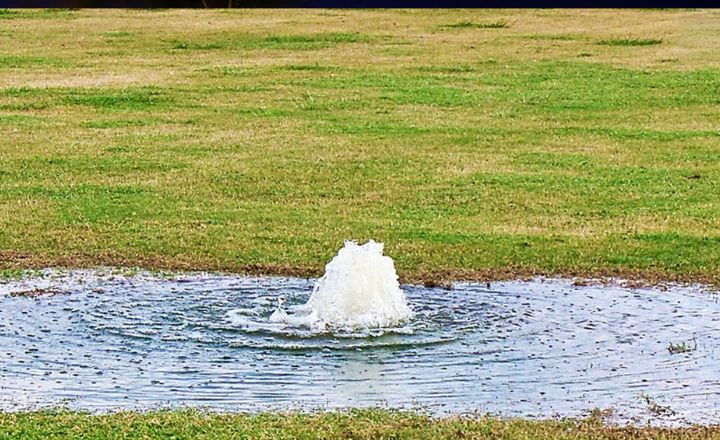
Other spring plumbing problems often involve water pressure. If you’re experiencing low water pressure or finding puddles of water around your home, it’s likely that you have a leaky exterior pipe, possibly in your automatic sprinkler system. Not only can a leaky pipe result in high water bills and damage to your home’s foundation, but it can also lead to a lack of pressure throughout your house.
It’s important to address any leaks and inadequate water pressure in outdoor pipes as soon as possible to prevent further damage. A professional plumber can assess the outdoor plumbing situation and recommend the best course of action to solve the problem. Frozen pipes can also be a leading cause of damage in underground sprinkler systems.
By fixing any leaks and maintaining your exterior pipes, you can ensure a steady flow of water throughout your home for years to come.
Clogged drains and standing water can be a sign of spring plumbing problems. It may seem like an inconvenience, but it can actually lead to more serious problems if left unaddressed. The standing water from clogged pipes can become a breeding ground for bacteria and pests, and the clog in the drain can cause sewage backups and overflows. Not only is this unsanitary, but it can also lead to costly repairs and even health hazards. It’s important to address drain clogs and standing water as soon as possible to avoid these spring plumbing problems.
A simple plumbing snake often does the trick with slower-draining clogs. Our plumbing services can offer you peace of mind and have your household plumbing back to 100%. Don’t let these spring plumbing problems hold you back!
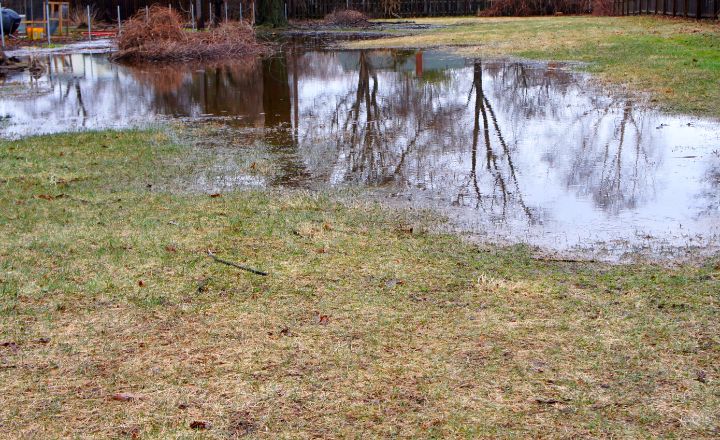
Poor outdoor drainage can lead to a variety of issues that persist if not addressed properly. Common problems include water near your home’s foundation, muddy and slippery walkways, and plant roots suffocating due to excessive water. These issues can ultimately cause damage to your property and decrease its value.
Additionally, if drainage problems persist, it may be an indication of more serious spring plumbing problems with your main sewer lines. This can eventually lead to sewer water in your front yard. As a homeowner, it’s important to pay attention to any signs of poor outdoor drainage and take action promptly to prevent further damage. Consulting a professional is highly recommended to ensure your drainage systems and drain line are functioning properly and to avoid costly repairs in the future.
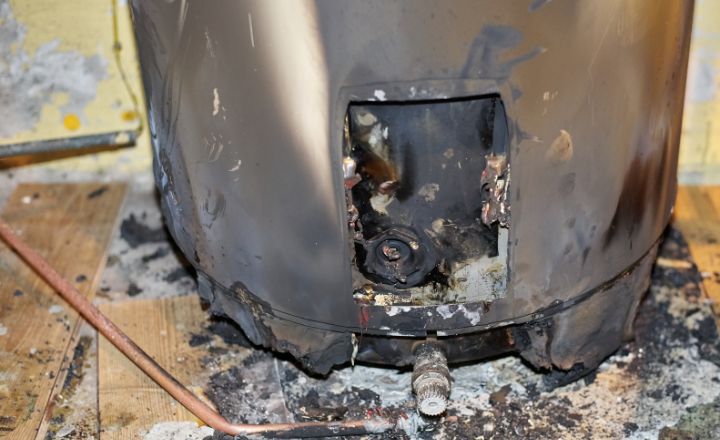
Other common spring plumbing problems include water heaters. They are essential to any home, providing hot water for bathing, washing dishes, and doing laundry. However, when a water heater malfunctions, it can be a frustrating experience. Temperatures begin to change, even producing freezing temperatures.
One common issue with water heaters is leaking pipes. Leaks can occur for various reasons, such as corrosion, rust, or loose connections.
Regardless of the cause, addressing the spring plumbing problems promptly before it leads to major water damage in your home is essential. Seeking the services of a professional plumber can help you identify the root cause of your water heater issues and provide a solution that is appropriate for your situation.
A qualified plumbing professional will not only repair the leaking pipes but also ensure that your water heater is running efficiently.
Rain may bring about feelings of renewal and rejuvenation, but it can also create unexpected spring plumbing problems.
As the water table rises and organic debris accumulates, your plumbing system can become overwhelmed, resulting in a potentially disastrous plumbing emergency. If you notice any signs of trouble, such as water that won’t drain or strange, unpleasant odors emanating from your pipes, it’s essential to contact a professional plumber immediately. Our plumbing services can have you worry-free in no time!
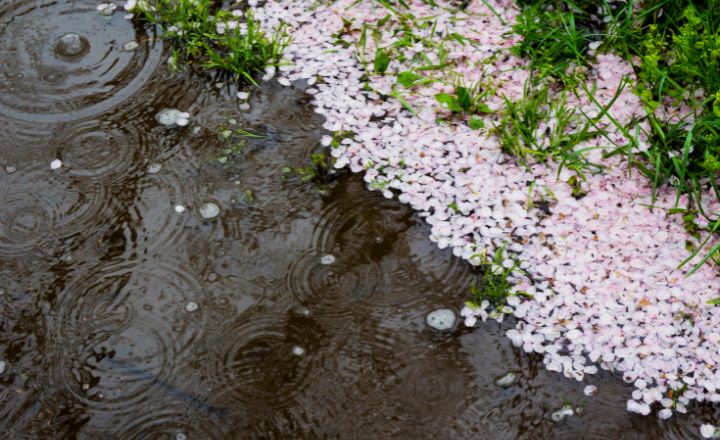
Poor water pressure can cause frustrating spring plumbing problems for homeowners, especially during the transition from winter to spring. As the snow melts and rains fall, typically bringing an increase in demand, many homeowners may experience a decrease in their water pressure.
This can be caused by a variety of factors, such as burst or frozen pipes or water that has been sitting stagnant in the lines due to the cold weather. It is important to identify the root cause of the spring plumbing problems in order to properly address the problem and ensure a steady flow of water throughout the year. By consulting with a professional plumber, homeowners can ensure that their pipes are properly cleared, and any necessary repairs are made to restore their water pressure.
PVC pipes may be slower draining after pipes freeze. Warmer weather can bring to light huge spring plumbing problems. If you notice extensive puddles, a flooded basement, or your water meter boxes seem to be reading higher, it may be time to call a spring plumbing inspector. A plumbing problem that’s flooding-related needs to be addressed quickly and efficiently.
Overall as temperatures rise, it’s common to experience a sudden surge in household plumbing issues. Fluctuating temperatures can cause pipes to expand and contract, leading to leaks, cracks, and even burst pipes. Additionally, rain can cause blockages in your drainage system, leading to backups and floods.
Ignoring these spring plumbing problems can lead to costly repairs and headaches down the line. Be proactive and schedule a spring plumbing inspection to prevent potential problems. Protect your home and your wallet by addressing plumbing issues early before they become bigger problems.
Are you located in Hoover, Alabama, and having drain issues? This article is just for you. Plumbing Problems?Plumbing Problems.
If you live in a manufactured home, you may not initially be aware of the plumbing differences from a site-built home. Because mobile homes are not permanent structures, the plumbing entering and leaving the house has a distinctive design. Everything from the materials to the location of the pipes and drain venting has different orientations compared to site-built homes.
The materials in manufactured homes often are innovative in the plumbing world. Homebuilders like to use new plumbing in mobile homes to see how they function. For example, builders first used PEX piping in manufactured homes before it became common in site-built home designs. Today, this pipe material is a standard in the industry.
Site-built homes typically use copper for incoming water, but in manufactured homes, this is not the standard. CPVC and PEX are more common in mobile home supply lines. Both work for hot and cold water lines. These materials may last as long as the incoming copper lines used for site-built homes. The plastic pipes are cheaper and easier to install. PVC — polyvinyl chloride — pipe may be used for drain lines and some supply lines.
Some manufactured homes built between the 1970s and 1990s had polybutylene pipe installed. Bleach used to sanitize the water supply would cause the material to wear out and leak. This type of pipe is no longer available. If you have it in your mobile home, consider repiping to replace it. During negotiations, request the owner to repipe the house at their expense before you move in.
Drain pipes carry waste water out of your home. Materials typically used for waste lines include PVC, chromed brass or cast iron. PVC is likely to be the chosen material because experts who know how to plumb a mobile home find it easier to install. It also costs less than metal pipes. These materials are not very different from those used in site-built homes, though, making drain pipes a common factor between the two.
Yes. Cold temperatures can cause the metal on your water heater to expand and contract, potentially causing damage, and eventually leaks. This could happen more often if you have an older water heater or if the unit is placed in an unheated area of the home. However, there are other things that could factor in, such as how well your unit has been maintained and the overall quality of your water. For instance, the more sediment in your water, the harder your water heater will need to work. drain cleaning
You should inspect your water heater throughout the year, not just during the winter. Look for any bending, protruding or cracks in the metal tank and other components. You also can do some troubleshooting. Have you noticed the water taking an unusually long time to get hot? Or does the hot water supply run out too fast? This could be the beginning of a bigger issue. drain cleaning
Water damage due to broken pipes is one of the most common homeowner’s insurance claims. Most household water damage is caused by plumbing leaks or appliance failure such as toilet flooding, sewer backups, burst pipes and similar issues. Incidents that are sudden and unpredictable are usually covered by homeowner insurance policies, but each policy is different and some require special riders for water damage. Your agent can tell you for certain if you have coverage. drain cleaning
Copper has been the longtime standard for plumbing. It has been around a long time and we know the material is durable and reliable for water pipes. However, plastic piping (PEX) works well because it is made of a flexible material. It is also resistant to cold temperatures and has fewer joints, so it may be less costly to install. drain cleaning
Every sink installation begins with the right sized opening. This may mean that your current vanity’s opening will need to be expanded. Once you get the opening in your vanity to the proper size, insert the sink. Afterward, crawl under the sink with a flashlight and begin installing the locknuts – starting with the center locks first, then front and back, and side to side, installing the corner nuts last. Once you get it tightened down, you can run a bead of latex caulking around the edge of the sink. To clean up excess caulk, use a water and sponge. drain cleaning
You probably have a clogged drain and need to schedule a professional cleaning. These lines get clogged with grease, food particles and soap scum. Eventually the buildup is so thick that the internal diameter of the drain is reduced and water cannot pass quickly through the pipe. Regular treatment with an enzyme-type drain maintenance product, will eat away the grease and biological scum inside the pipes and extend the time between cleanings. drain cleaning
Every clog is different, just like every home is different. But you can prevent clogs in your drains by taking a number of preventive measures. Whether your house is older or modern, sooner or later you will find yourself with clogged drains on your hands.
Here are some great ways to prevent clogged pipes:
There are a lot of basic steps you can take to prevent clogs in your drains, most of which start with making sure the right things are going down the drainpipes. If you’re concerned about your sewage system, it may be beneficial to consult a professional to assess your plumbing. Innovative Plumbing Solutions is here for you. Simply call (205)-640-0200
Generally when you have a foul odor when flushing the toilet it means the toilet wax ring is not sealed to the toilet or the floor.
Whenever you put water into a drain, it first has to push the air away. If the wax ring is not sealed, it will simply push it between the floor and the bottom of the toilet into the room, instead of down the pipe. Because both air and water take up space in the pipe, you can’t put the water in unless you move the air out.
Typically we send it up the main vent of the house and out the roof, but if the roof vent is blocked, then there is no place for the air to go. To eliminate the bathroom odor, you should reseal the toilet to the floor and the clear the main vent of debris. Plumber near me in hoover
For hard and soft water explained simply…Hard water contains a high concentration of dissolved minerals, like calcium and magnesium. In its pure form, water does not contain these minerals and is naturally soft. But as it passes through the ground and rocks such as limestone, it picks up those hard water minerals.
Soft water contains little to no extra elements. This can occur naturally, or soft water can be produced with water treatment equipment that removes the hard elements. Plumber near me in hoover
The minerals in hard water leave behind scale. This can require repeated cleaning of surfaces that come into contact with hard water. The deposits build up inside pipes and appliances and can reduce efficiency. Severe buildup can cause the need to have certain types of water supply pipes replaced prematurely. Although it can be troublesome, scale from hard water is NOT harmful to your health if consumed. Plumber near me in hoover
Owning a home means that it’s likely you’ve made DIY repairs in the past and will consider doing so next time repairs need to be made. Thanks to countless Internet how-to’s and blogs, DIY plumbing is easier than ever. However, not every job can be done yourself. You may not have the time or know-how to complete a job, or the job may be too big for one person. It’s important to know when to hire a plumber and when to get your hands dirty.
The main thing to consider is cost. Plumbers charge by the hour or by the job, and the cost of labor is often the biggest expense, not materials. However, every job has different costs associated with it. For example, replacing a gasket in a faucet will be less expensive than purchasing and replacing the entire fixture. It will usually cost less to do the project yourself, as long as you know what you’re doing. However, mistakes sometimes cost time and money to correct. If you’re unsure of how to accomplish the job, the best option may be to hire a plumber.
Plumbers have training and experience to ensure that the job is done correctly. They know the local codes, obtain permits and get inspections as needed to protect you and your home. They have the proper tools for each task and are well equipped to handle any plumbing problem.
We recommend calling us at (205)-640-0200 for all types of plumbing repair needs—big and small. As always, we’ll be here with lots of tips on how to do the best DIY plumbing job.
If you have red stains in your sinks, or your water has an unpleasant taste and smell, there could be a few reasons. Generally, the primary cause to yellow water is rust. Small amounts of iron and oxygen is a normal occurrence for water system, but when these are combined and in larger quantities you will have yellow water. This will result in yellow bath water as well as yellow water from faucets.
WHAT CAUSES WATER TO LOOK YELLOW?
“If you have red stains in your sinks, or your water has an unpleasant taste and smell, there could be a few reasons. Generally, the primary cause to yellow water is rust. Small amounts of iron and oxygen is a normal occurrence for water system, but when these are combined and in larger quantities you will have yellow water. This will result in yellow bath water as well as yellow water from faucets.
IS YELLOW WATER SAFE TO DRINK AND USE?
As yellow water is caused by higher concentrations of iron it is often safe to drink. However, it may taste unpleasant and you should contact your local plumber before the issue persists.
CALL THE PLUMBING PROFESSIONALS AT INNOVATIVE PLUMBING SOLUTIONS
It is always best to call a professional plumber like Innovative Plumbing Solutions for a proper inspection to diagnose a problem such as yellow water that could lead to a health risk or property damage.
Jetting equipment cleans sewer lines better than snakes. Jetters use varying degrees of water pressure to cut through grease and other debris that build up in drain pipes, especially in restaurants, and draw it back where it can be vacuumed out, providing a more thorough cleaning. Enzyme-type sewer and drain cleaning and maintenance products can be automatically injected into the line to help keep grease and food waste from building up in the line. The enzyme eats the grease and turns it into a liquid, which washes away with water, preventing most backups.
Are you in need of Innovative Plumbing Solutions? Our Birmingham, Alabama-based plumbers are available to serve you. Have a plumbing emergency? Our team is available 24/7 to promptly address any concerns that you have. Contact us today!
Digital Marketing & Website Design by Nation Media Design | Copyright © All rights reserved.